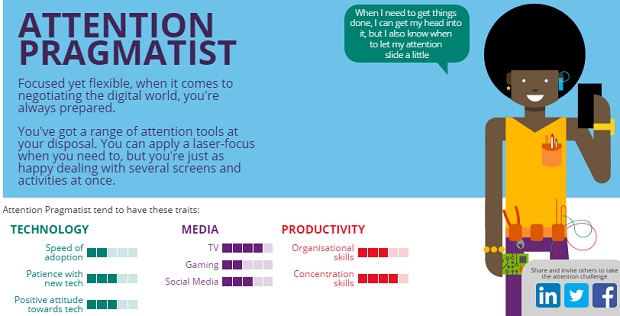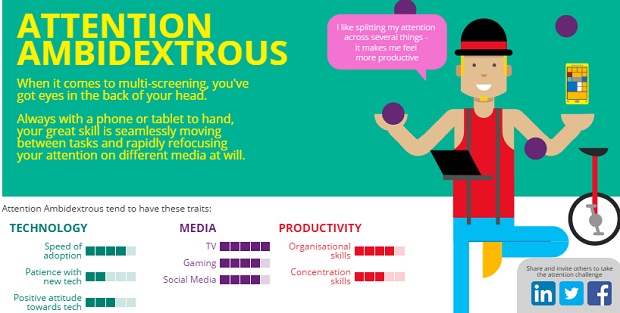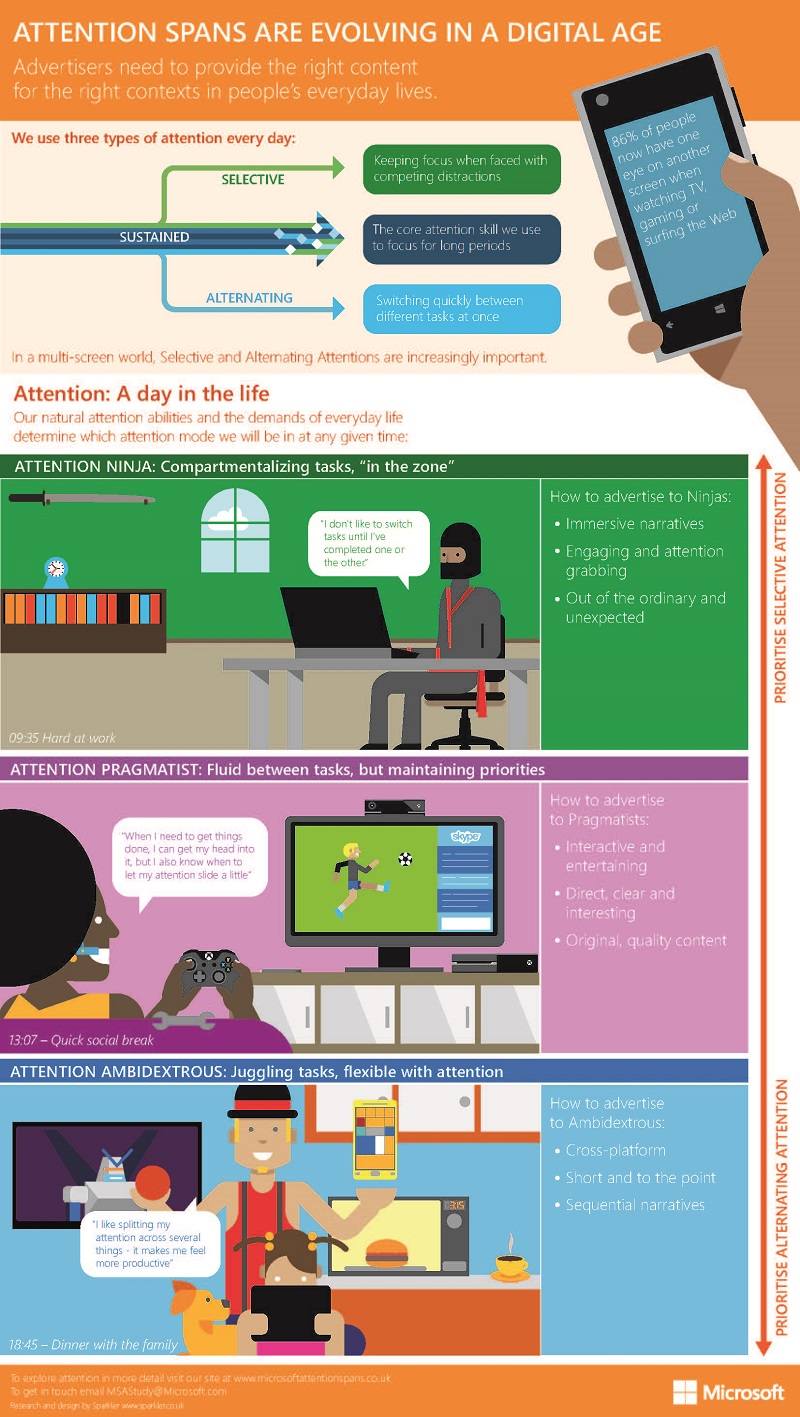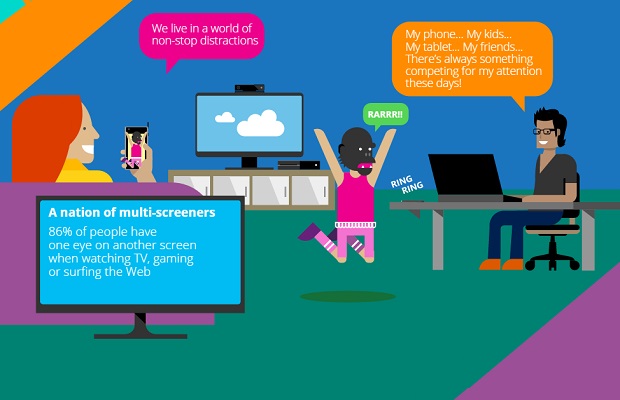Consumer attention spans are evolving as 86% of Brits multi-screen, meaning that brands need to adjust their ad experiences, according to new research.
The study, from Microsoft, indicates that consumers’ attention spans are evolving in response to the rise of multi-screening, putting the onus on brands to create ad experiences that are in tune with this shift in audience behaviour.
Key findings include:
• 86% of Brits multi-screening when watching TV, gaming or browsing the web
• 18-24 year olds have strong ‘selective’ attention, due to them growing up with digital tech and multi-screening
• Older generations (over 45s) that have not grown up with as much tech are better at multi-tasking
• The research outlines three attention styles which brands must be mindful of in order to create successful ads
The Attention Spans study, developed for the advertising community and available for download today, reveals that 86 per cent of consumers are multi-screening when watching TV, gaming or browsing the internet.
The research was developed from Sohlberg and Mateer’s model of attention[1], uncovers new insights for brands and advertisers, helping them to develop ad experiences that serve their target audiences most effectively.
Almost half (47%) of millennials (18-24 year olds) studied have high selective attention which is due to their ‘multi-screening’ behaviours.
These digital natives conduct a broader range of multi-screen activities when watching TV or browsing the web, whereas older generations (45 years+), not as used to technology, are more disposed towards alternating attention.
The study, which was conducted by Sparkler, surveyed 2,000 UK consumers and included 5 in-home digital ethnographic studies, indicates a move away from traditional understanding of attention. It identifies three natural attention ‘personas’ which reflect consumers’ use of digital technology:
• Ninja: when consumers compartmentalise tasks so they can control their attention. Individual activities are allocated specific devices and usually work and play are kept completely separate

• Pragmatist: when consumers show some degree of compartmentalisation but use attention skills to combine activities, rather than having rigid rules to organise their day

• Ambidextrous: when consumers regularly blend tasks together across devices to do household admin, work and social media activities at the same time

Owen Sagness, UK General Manager for Microsoft Advertising and Online says: “Consumer use of digital technology continues to evolve at a rapid pace, creating both opportunities and challenges for advertisers. Our study indicates that people are adapting their attention skills according to a broad range of demographic and lifestyle factors, such as age, vocation or time of day.
“As consumers shift their behaviour to handle multiscreen environments, agencies too must shift their approach to audience engagement. Understanding different audience segments and how their attention spans impact their interaction with advertising is key. In addition, agencies must invest in technologies like programmatic and data analytics. Those acting on this insight will reach audiences at the right moment, with the right type of content across the right devices, driving greater results and ROI for brands.”
Each persona reflects consumer usage of technology and outlines how they approach everyday tasks, helping brands to understand the new rules around connecting with people in a multi-screen world. To learn more about how attention spans are evolving in the digital age, download the full research report here.
View the infographic here:


